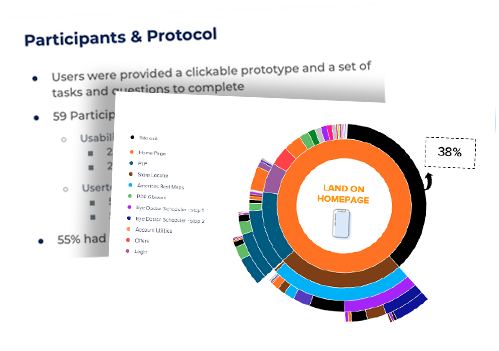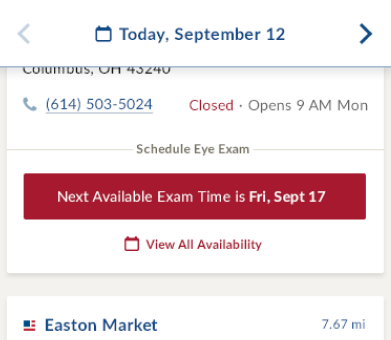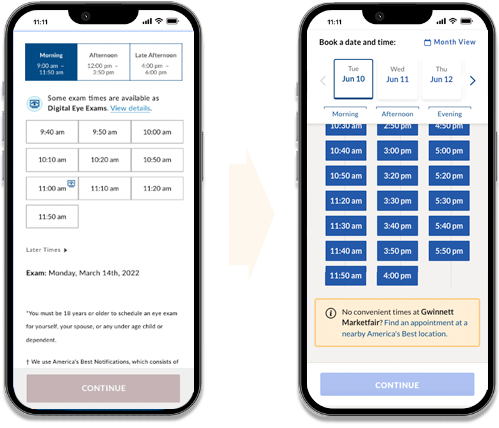I led the UX redesign of National Vision’s online exam scheduler, driving a $5.5M lift in annual revenue and influencing scheduling flows across all appointment-offering brands on their shared platform.
Design Thinking • Product Strategy • Team Leadership
The Challenge
My previous employer’s online exam scheduler was underperforming,
limiting revenue potential across its major digital brands. Despite high site traffic, too many users were
abandoning the scheduling process, which directly impacted the company’s
primary business goal.
Additionally, the experience was
not aligned with the company’s evolving brand identity or primary KPIs. The operations team wanted to add
additional patient requirements but the interface lacked clarity, with mobile usability issues and friction points
uncovered through session analysis. Analytics revealed that mobile traffic consistently comprised
over 80% of sessions!
The Strategy
As the lead UX designer, I worked closely with a cross-functional team to redesign the scheduler with a user-centered approach. We conducted usability tests, reviewed analytics, and audited user flows to identify key drop-off points. I created wireframes, prototypes, and polished designs in Figma, using an agile delivery model to release iterative improvements.
Strategic updates focused on simplifying the flow, clarifying calls-to-action, and
reducing cognitive load—especially on mobile devices. The redesigned solution was built into the company’s shared platform,
enabling scalable deployment across all appointment-offering brands.
View Related Figma Document
The Outcome
Our redesign led to a
100 basis point increase in scheduler conversion rate, translating into an
estimated $5.5M in added annual revenue. The improved flow was
adopted across multiple brands including
America's Best,
Eyeglass World, and
Military Optical.
Positive user feedback and
performance metrics validated the effectiveness of the changes. The project not only
boosted revenue but also
proved the value of UX-led iteration, informing future roadmap decisions. Most importantly, it demonstrated how
thoughtful design can meet both user needs and business objectives at scale.




